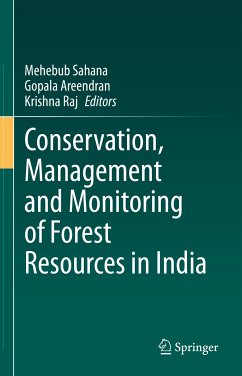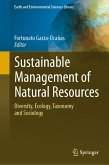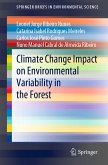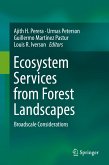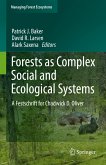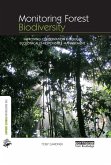This volume is devoted to compiling recent advancements, methodological improvements, new processing techniques, integration methods and rigorous applications associated with conceptual techniques on the conservation and monitoring of forest resources for a scientific audience, with a focus on cases and applications in India. The primary objective of the book is to advance the scientific understanding of the recent trends and technological improvements in forest conservation, management and related research themes in forest resources and human-wildlife interactions. The book is organized into five sections: (I) Forest Conservation Ecology (II) Forest Conservation and Society (III) Forest Management (IV) Forest Monitoring using GIS and Remote Sensing and (V) Human Wildlife Conflicts. It covers various research themes related to forestry, wildlife, habitat fragmentation, forest management and human-wildlife conflict research, and therefore will be beneficial to a diverse range of researchers, scientific organizations, wildlife scientists, biologists, ecologists and planners in the fields of wildlife and forestry. The book will further be of use to post-graduates, PhD research scholars, professors, geospatial experts, modellers, foresters, agricultural scientists, biologists, ecologists, environmental consultants and big data compilers.
Dieser Download kann aus rechtlichen Gründen nur mit Rechnungsadresse in A, B, BG, CY, CZ, D, DK, EW, E, FIN, F, GR, HR, H, IRL, I, LT, L, LR, M, NL, PL, P, R, S, SLO, SK ausgeliefert werden.

